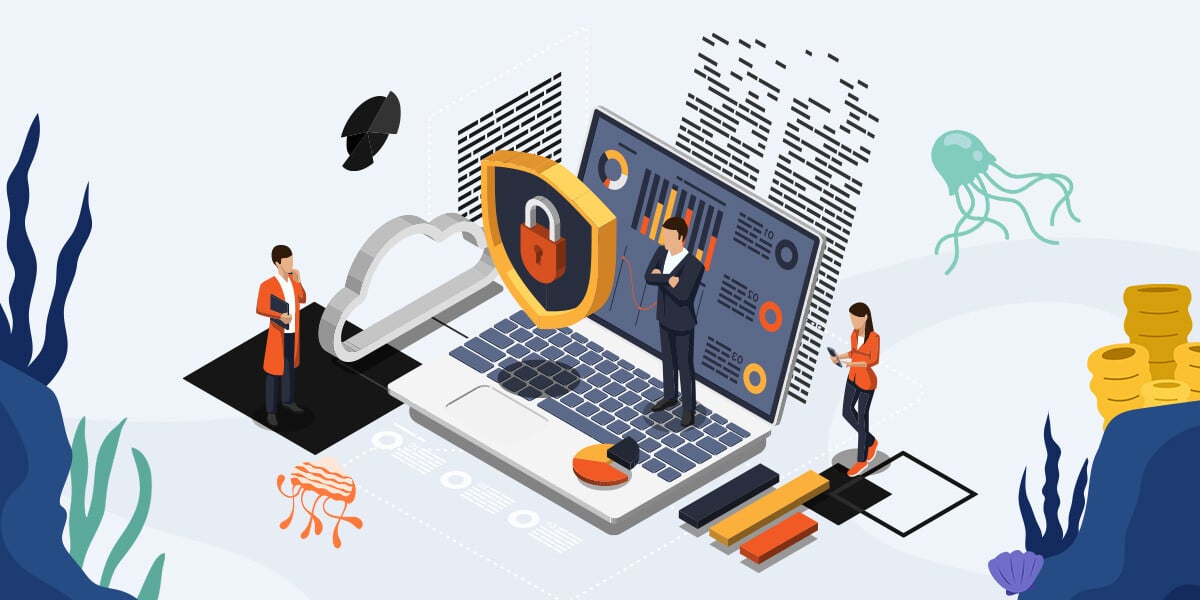


3 Reasons Your MSP Should Invest in Cybersecurity



Cybercrime is on the rise again, and proactivity is critical for reducing your MSP's risk of becoming a victim. According to IBM's 2023 Cost of a Data Breach Report, 51% of surveyed organizations who suffered data breaches said they were planning to up their cybersecurity investments over the next year. Here's a brief list of reasons why your MSP should be among them.
Why MSP Companies Need to Invest in Cybersecurity
Your clients trust you with their data, and violating that trust could cost your organization millions or even billions in legal fees, noncompliance penalties and reputational damage. But the reasons for investing in cybersecurity go beyond simple cost savings.
1. The Constantly Evolving Threat Landscape
Cybercriminals are always on the lookout for new exploits and technologies they can use to target your business and compromise your data security. And when most basic antivirus software only recognizes known threats, your MSP can easily fall prey to unseen and zero-day attacks without additional protection.
Incorporating new cybersecurity tools and technologies into your MSP's network can help you identify known and unknown vulnerabilities in your attack surface. That way, you can start resolving issues on the technical side.
But that also leaves the question of what you should do about your people, as considering the human element in cybersecurity is crucial. Regardless of the specific threat, your employees are one of the biggest security risks for your MSP — human error is a key factor in 82% of all cyberattacks.
Investing in a user-friendly security awareness training platform designed specifically for MSPs is a great way to mitigate that risk by:
- Educating employees on the importance of following cybersecurity best practices.
- Teaching valuable tips and tricks for responding to potential threats.
- Building a strong culture of transparency and security.
- Ensuring employees understand ransomware and other threats that target MSPs.
That's our mission at Phin Security — helping MSPs educate their teams using engaging lessons and memorable practice exercises. This training helps minimize the impact of cyberattacks on businesses that use their services and reduce risk within the organization.
2. The Rising Cost of a Data Breach
Security breaches cost organizations an average of $4.45 million globally in 2023 — a staggering 15% increase from just three years before. Some of the biggest contributors to this cost include:
- Ransom payment: In one recent study, 84% of surveyed organizations hit by a ransomware attack agreed to pay the ransom demand, which can reach over $1 million in the United States. The same study found that companies that paid the ransom often experienced a second attack.
- Unplanned downtime: Cybersecurity incidents can completely disrupt normal operations, causing significant productivity losses for days or even weeks.
- Reputational damage: Following a cybersecurity incident, your client may feel less comfortable trusting you with their data. You may see a dip in business for some time afterward as a result.

Investing in expert cybersecurity services can help you minimize incident recovery time by creating a streamlined response plan. This plan aims to minimize the impact of data breaches and improve business continuity.
3. Compliance Requirements for Data Security Regulations
It's impossible to overstate the importance of compliance in cybersecurity. Every company is subject to stringent cybersecurity standards and regulations, especially in highly technical fields like health care and finance.
Because you're in charge of maintaining their sensitive data and digital infrastructure, the same rules your clients follow apply to your MSP in addition to the standards you already follow. Some examples of those regulations include:
- HIPAA: Any clients in the health care industry that store and manage electronic health records (EHRs) must follow the Health Insurance Portability and Accountability Act (HIPAA) Security Rule. This standard strictly regulates the processes of securely storing and deleting patient health information.
- PCI DSS: If any of your clients accept credit card payments, you likely must comply with the Payment Card Industry Data Security Standard (PCI DSS).
- SOC 2: Service Organization Control Type 2 (SOC 2) is a cybersecurity framework specifically aimed to ensure third-party service providers like MSPs actively manage information security and data loss prevention when handling client data.
The above standards — and any others that your organization may follow — ensure customer information protection and privacy for sensitive data the business collects. Typically, compliance with these standards involves implementing advanced security technologies and policies, such as advanced encryption and multifactor authentication (MFA).
Making the Case for Hiring Cybersecurity Expertise in Your MSP
You already staff the best and brightest IT subject matter experts you can find, and many of them likely have some experience working with cybersecurity projects. So, why should you make adding to your staff part of your cybersecurity investment strategy?
Adding cybersecurity experts to your in-house staff is a must moving forward, especially if your MSP is actively taking on new clients. Experienced cybersecurity professionals bring valuable skills and expertise to your company, helping you:
- Take a more proactive approach to incident management.
- Identify the most effective security tools and processes for your business.
- Simplify security solution implementation processes, improving your chances of a strong ROI.
- Develop new security service opportunities for your clients.
In short, bringing in a cybersecurity expert will help you strengthen your organization's overall security posture to reduce your risk of attack and minimize potential damage.
You can also augment their skills with assistance from employee training platforms that help the rest of your staff better understand cybersecurity tools, processes and regulations — which can, in turn, increase the value of your services for your clients and increase customer satisfaction.
Vendor Risk Management for MSPs
Your MSP uses software programs from other vendors when designing custom solutions for your clients. That's why it's important to ensure your organization has a third-party risk management (TPRM) program in place. You should also apply this process to any cybersecurity vendors you add to your tech stack, whether you offer it to your customers or restrict it for internal use.
A TPRM is the process an MSP uses to vet their vendors before integrating their products into their solutions. It's essential for managing your risk and ensuring your clients' safety, as any tech vulnerabilities in the products you use will affect their systems most directly.
Doing your due diligence before partnering with any technology vendors can also boost your clients' trust in your services, as the process demonstrates your commitment to total safety and security.
Embrace Cybersecurity as a Business Imperative With Phin Security
Are you looking for an engaging, innovative security awareness training platform that will equip your MSP with the skills and knowledge to face the evolving threat landscape with confidence?
We've got the solution here at Phin. With engaging lessons, intelligent automation and an intuitive user interface, our industry-leading training and phishing simulation program promotes security education without hassle. Plus, advanced reporting and analytics features provide measurable insights into training progress, so you have the data needed to justify your investment.
Discover how Phin Security can transform your MSP cybersecurity stance through our expert services and streamlined employee training programs. Contact our team today to learn more.







Leave a comment: